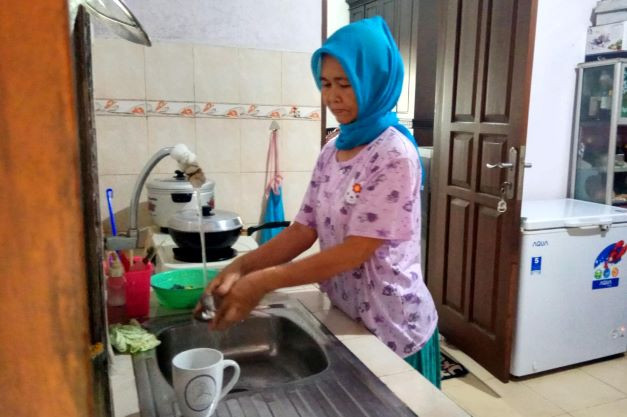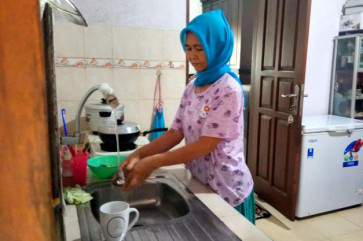Popular Reads
Top Results
Can't find what you're looking for?
View all search resultsPopular Reads
Top Results
Can't find what you're looking for?
View all search resultsFurther steps are needed to ensure protection for domestic workers in coming bill
Domestic workers are even more vulnerable to abuse because they work in private homes.
Change text size
Gift Premium Articles
to Anyone
W
hen it comes to human rights and protecting vulnerable groups against worker abuse and discrimination, including domestic workers, laws protecting them are required. In this context it is encouraging to learn of a recent confirmation by President Joko "Jokowi" Widodo that the domestic worker protection bill is being finalized.
Jokowi made the confirmation after the government submitted a draft of the Regulation in lieu of Law on Job Creation No. 2/2022 to replace the previous Job Creation Law, which was considered conditionally unconstitutional by the Constitutional Court for failure to follow the mandatory procedures from the beginning of its formation.
The President’s announcement is the final step in a shift of the government’s stand to support the draft of the domestic worker protection bill, initiated by the House of Representatives, after being stalled for nearly 20 years in the legislation process.
Contrary to the Job Creation Law, which is perceived as a “pro-business” policy and remains controversial, the government is pushing for completing the draft to protect the rights of vulnerable domestic workers. This is in line with the demands of trade unions and NGO coalitions for domestic workers and deserves appreciation with a thumbs up.
The majority of the political party factions in the House has indicated their agreement to start and deliberate the draft as quickly as a presidential decree. However, the House needs more time to involve and accommodate relevant stakeholders and prepare a more comprehensive law, including for Indonesian migrant workers who also experience similar abuses of rights and violence.
Domestic workers are even more vulnerable to abuse because they work in private homes. They are often subject to working long hours, discrimination, verbal and sexual harassment, with no work contract or attention to occupational safety or their health, in poor living conditions. Some abuse cases involve child or forced labor or even “modern slavery.”
While the draft law on domestic worker protection has been stalled with no progress, a number of abuse cases have occurred without any remedial action or compensation for the victims. The government and the House should remove “regulatory capture” to act as a regulator rather than as an employer who may have a conflict of interest in employing domestic workers. They should finalize and pass the bill as soon as possible.



















